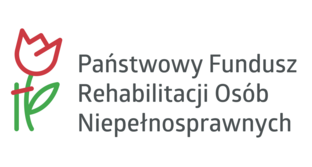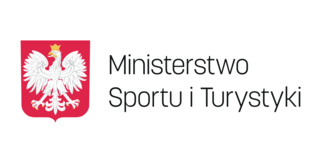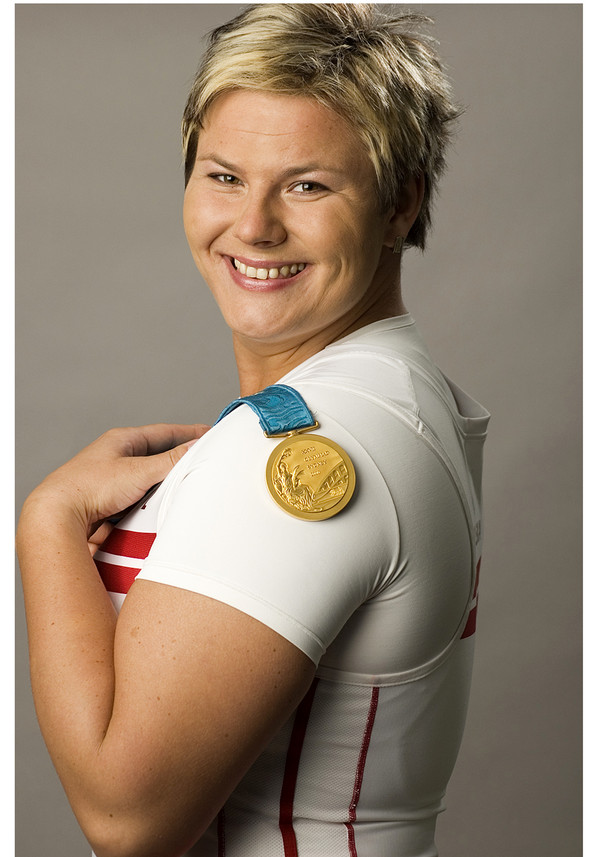Kamila Skolimowska
Childhood
Kamila Skolimowska was born on November 4, 1982, in Warsaw. She grew up in a house with great sports traditions. Both her immediate and further family actively practiced many sports. Starting from athletics such as discus throw, shot put and weightlifting, through volleyball, to rowing.
Even as a few years old, Kamila showed great physical fitness. She loved to make somersaults, backbends and crunches. She enjoyed cycling, riding a scooter and ice skating. She also showed a huge swimming talent. Jumping into the water was the greatest fun of all for her. Kamila has always had great support on the part of the family. Her parents encouraged both Kamila and her older brother Robert to get interested in the sport. They adhered to the principle that sport teaches: reliability, tolerance, courage, compromise and diligence, and that's what they wanted to pass onto their children.
Weightlifting and other sports
At the age of 9, Kama began training weightlifting under the supervision of trainer Krzysztof Suchocki. After two years of hard work, she could lift 60 kg in clean and 90 kg in a jerk. This result secured her a bronze medal at the Polish Seniors Championships in Elbląg. Unfortunately, due to restrictive regulations, Kamila's adventure with this sport came to an end. The Skolimowskis, therefore, started looking for a different sport discipline for their daughter. In the primary school at Afrykańska street, there were two sports classes: one with a rowing profile and the other with athletics. Remembering the successes of her aunt Barbara Wojciechowska (an Olympic athlete from Montreal) Kamila decided to practice rowing. Even then, she trained two disciplines simultaneously: rowing and weightlifting, which she found difficult to give up. Kamila did very well in rowing - she was breaking class and school records, bravely competing with boys, taking part in competitions, in short - she was successful, but she felt that was not a sport that she enjoys doing. She gave it up... She played volleyball in the Skra Warszawa club for a few months, but that was not what she was looking for.
Hammer throw
In 1996 Kamila wandered into the Legia stadium with her brother. There, she saw a javelin and started playing with it. A trainer, Zbigniew Pałyszko, saw her – and persuaded her to come to a trial training. He also proposed that she try her hand at hammer throw - a new athletics discipline at that time. At her first training session, she threw 27 meters, a great prognosis of her talent.
The following days only confirmed it. A time of demanding training and first successes began. Despite her young age, it took Kamila as little as two months to become one of the leading Polish female hammer throwers. During a competition on the main court of Warsaw Skra, she threw 40 meters. The same day, she managed to correct this throw by as much as 7 meters.
The result, though officially not measured, beat what was then the record of Poland. But it was the Polish Championships of 21 June 1996 that took place in Piła that became a stepping stone for her career. With a throw of 47 meters and 66 centimeters, the less than 14-year-old Kamila won the gold medal in the senior category and set a new record of the country, while defeating many older friends.
It was undoubtedly the beginning of an adventure that changed Kamila’s whole life. After a long search for the perfect discipline for her, many sacrifices and changes, she finally found what made her happy, what she felt comfortable doing... The next four years were spent training, going to camps and taking part in many competitions, mainly in junior categories.
The Olympics – Sydney 2000
On September 29, 2000, Kamila, at less than 18, went down in the history of Polish athletics. Already in the first qualifying round of the Olympic Games in Australian Sydney, she completed the minimum and entered the finals. The final competition began with a failed throw. In the second throw, she made no mistake and the hammer sailed to 66.33 meters, which gave her the fifth place at this stage of the competition. The third attempt was a demonstration of all that is most beautiful in hammer throwing: perfectly tight turns and a powerful release. The hammer landed on 71 meters and 16 centimeters, which gave her the lead in the competition and a new record of Poland – as well as juniors’ world record. The young player did not give in to the stress and pressure of a big event. The next three competition throws were also very successful, but it was the third one that guaranteed her the Olympic gold medal. Kamila defeated, among others, two major athletic stars: the Russian Olga Kuzienkova and the German Kristen Muenchow. Thus, she became simultaneously the first female Olympic champion in the history of the competition and the youngest in the history of Polish sport. After returning to the country, she was awarded the Golden Cross of Merit by the President of the Republic of Poland.
All this transformed her life radically. Suddenly she became a media person, she was invited to numerous TV programs and official meetings, she also gave innumerable interviews. Many people asked for her autograph or a moment of her time. Kamila was always available, patient, she posed for photographs and answered questions with a smile, which proved that despite being young, she was a solid and mature person.
The years 2001-2008
In the following years, successes were intertwined with failures. In 2001, during the World Championships in Edmonton, Kamila came in fourth. She made a better performance a year later at the European Championships in Munich where she won the silver medal with 72.46 meters. She also triumphed at the European Athletics U23 Championships in 2003 in Bydgoszcz. At the Olympic Games in Athens (2004) she was fifth. Two years later, at the European Championships in Gothenburg, she won bronze. During the World Championships in Osaka (2007) she once again missed the podium by one place. At the Olympic Games in Beijing (2008) she failed to complete any throw. Throughout her career Kamila was a 12-times Polish champion – she won her last title in 2008 in Szczecin. She beat the record of Poland 17 times. She set her personal record – 76.83 meters on May 11, 2007, during the IAAF Super Grand Prix meeting in Doha, Qatar.
Kamila’s private life
Kamila spent every free moment she could with her family and friends. She was the life of every party, which is why she was always surrounded by so many people. Her character made it natural: she was always cheerful and helpful, sensitive to other people's problems, she knows how to listen, and at the same time she was open-minded and a real getter. Her friends say that she lived for others... Even after many successes and the Olympic gold, she never let it get into her head, she remained herself until the end. She loved chocolate and cookie ice cream. Her passion was traveling, but she felt best at home. She collected elephant figurines, with trunks raised, she believed that they brought her luck. She liked cars and fast driving, she even took a course in driving in difficult conditions. From 2006, she found a new passion for deep-sea diving to the extent that she completed a diving instructor course. The motto that Kamila lived her entire life by was: "Believe that what is now difficult will be simpler someday!"
Education
When the emotions of the Olympics settled and the prose of everyday life returned, she resumed her high school education and took her final exam. Thanks to the help of friends who collected materials for her, she managed to catch up and take the final exams with the rest of the class. She took Polish, mathematics and the Russian language. After graduating from high school, she decided to take up undergraduate studies at the University of Social and Economic Sciences. The title of her BA thesis was: "Electronic communication between BRE Bank and its clients." After the defense, she continued her studies, this time at the Faculty of Management at the University of Warsaw. She defended her master's thesis entitled "Creditworthiness assessment and security methods" in 2005. She also made plans for her doctoral studies. She even started collecting materials related to the subject of sportsmen with disabilities, which was very close to her heart. Education was very important to her, she persistently pursued self-development and always wanted to expand her knowledge.
Police
In February 2004 Kamila decided to leave the Warszawianka club, where she trained, for Gwardia Warszawa. Since it was a police club, Kamila had the opportunity to pursue a job in the Police department. She trained for it in Legionowo, and after completing the course – worked in the sergeant rank in the prevention department in Iwiczna near Piaseczno. She treated her Police work as a way to secure her future after finishing her sports career. In March 2008 she was transferred to Tomice, to the Vocational Development Department.
February 18, 2009
Kamila died on February 18, 2009, at a grouping of Polish athletes at Vila Real de Santo António in Portugal.
The cause of death was a pulmonary embolism. The funeral took place on February 26, 2009. Kamila's ashes lay in the grave at Aleja Zasłużonych, at the Military Cemetery in Powązki, Warsaw. The tombstone has the inscription:
"We leave when we are at our best"
She was posthumously awarded the Knight's Cross of the Order of Polonia Restituta.
Commemoration
The Foundation, which was established by Kamila's family and friends in December 2010, should be considered the best commemoration. The Foundation helps young, injured athletes, promotes sport and in particular athletics among children and young people, and organizes popular events, among others: Kamila Skolimowska Memorial. In August 2009, the star of Kamila was unveiled at the Aleja Gwiazd Sportu in Władysławowo. Since 2010, Kamila is the patron of the Secondary School Complex No. 3 in Bytom. Also in Ełk, homage was paid to Kamila, giving her name to the athletics stadium located at School No. 1. In Warsaw, the courts of the Primary School No. 312 bears her name. From May 17, 2014, also the stadium of the Central Sports Center in Spała is named after Kamila Skolimowska. In September 2015, the Foundation together with the Polish Olympic Committee organized a weekly exhibition entitled "Kamila Skolimowska - a medal-worthy girl", celebrating the 15th anniversary of Kamila winning the Olympic gold medal in Sydney.




















